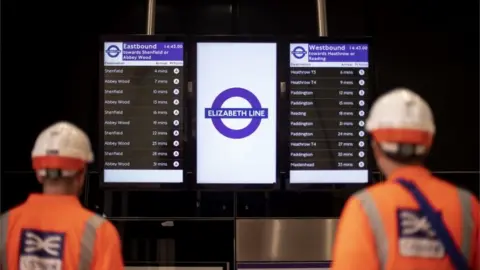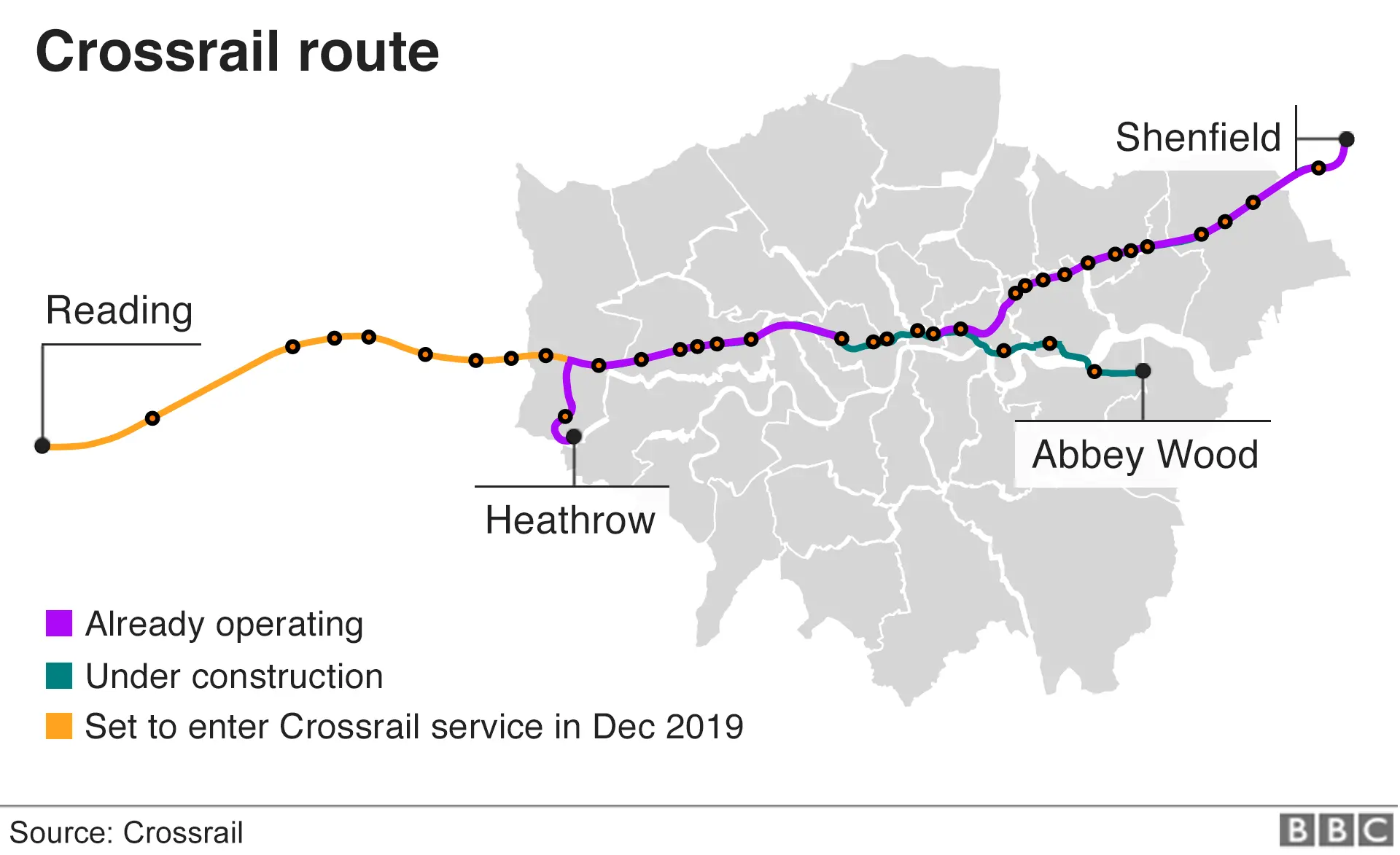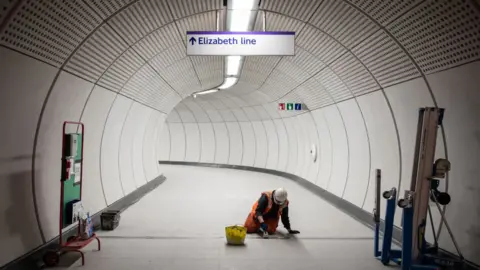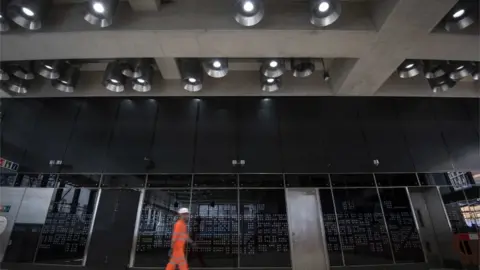Coronavirus: How realistic is Crossrail opening next year?

 PA Media
PA MediaIf there's one thing London's public transport needs right now, it's more capacity.
Social distancing means only 13-20% of passengers can use the London Underground or buses.
So the bosses at Crossrail know how urgently it is needed. But unfortunately the pandemic has slowed progress, as worked paused in March due to the coronavirus pandemic.
Crossrail's chief executive Mark Wild and most of his team have been working remotely.
Mr Wild said: "Whilst we have done pretty well and people are now back at work, the pandemic has had an effect and we're still quantifying that.
"We understand, more than ever, London needs a line like the Elizabeth Line cutting across London.
"Big stations, big trains, easier to have social distancing on our stations."


Crossrail is a new railway that will run beneath London from Reading and Heathrow in the west through central tunnels across to Shenfield and Abbey Wood in the east.
Construction began in 2009 and it is Europe's biggest infrastructure project - it had been due to open in December 2018 although that was pushed back to 2021.
It has been officially named the Elizabeth Line in honour of the Queen and will serve 41 stations.
An estimated 200 million passengers will use the new undergound line annually, increasing central London rail capacity by 10% - the largest increase since World War Two.
Crossrail says the new line will connect Paddington to Canary Wharf in 17 minutes.

The project was originally supposed to be finished in December 2018 but has suffered several setbacks.
Earlier this year Crossrail Ltd admitted that the line would probably not open until the spring of 2021, and probably won't be fully operational until mid-2022.
Parts of the route, named the Elizabeth Line, are running already, but the central section is yet to open.
The cost of the project could reach £18.25bn, more than £2bn more than the original budget.
Back in March, 60% of safety testing on things like fire systems and platform doors had been completed.
Now work has resumed again on site with social distancing.
That means the number of workers on site has been reduced down to a quarter and so the work takes longer.
What's called the "dynamic testing" of the trains has started again.
The purpose of that is to identify and fix any software bugs in the train control system and to make sure everything works as planned.
The target is to be able to start "trial running" this year. That is, run the trains as close together as they would in normal service. That is crucial if the service hopes to open by next summer.
 Getty Images
Getty ImagesThere is also two to three months of work left to do on the three different signalling systems.
But the big challenge is the 40% of work left to do on the safety checks known as "assurances".
The management team say it is working to the opening date of the summer 2021 for the Paddington to Abbey Wood section under central London.
To make up for lost time, Crossrail wants to carry out blitz testing in August and September.
I asked Mr Wild if he could guarantee 100% if Crossrail will open in summer 2021.
He said: "I guarantee that this project team and myself, will do everything humanly possible to do it.
"I must say we are working pretty effectively - 2,500 people working off-site and we are making great progress on the assurance work.
"Clearly we have to do that safely but there's no doubt Covid has had an effect and we are working now on a plan to recover lost ground."
 PA Media
PA MediaI'd say that is realistic.
There is no doubt that many in the transport industry have doubts about the feasibility of mass transit.
Not only are there concerns about funding but will these big infrastructure projects still be needed in the future?
Particularly if behaviour has changed and we see more home-working for example, or people staying local.
Mr Wild is cautiously optimistic, saying: "I think it's far too early to say what the long-term effects of this [pandemic] will be.
"I have no doubt that Crossrail 1 and Crossrail 2 will still be required.
"This will affect how people work but I remain not really convinced we won't need mass transit.
"No matter what I think, Covid-19 will pass and human beings want to agglomerate, they want to be with people, they want to drink with people, have meals with people, they want to socialise - so I think its too early to tell.
"My job is to get this railway open right now as London desperately needs it. "
